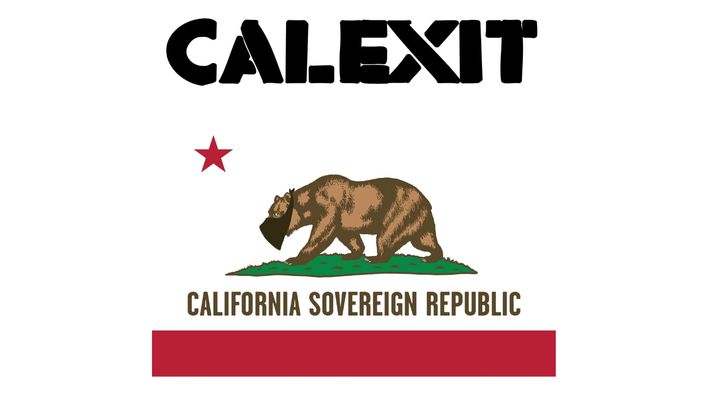New "Calexit" Plan Could Make California Its Own Crypto-Backed Nation

The idea of California seceding from the United States has been floating around for years. It gained attention in 2016 after Donald Trump became the president, but it ultimately failed to make a bigger impact. Now, with the 2020 presidential election just months away, the movement is once again picking up speed.
This time around, Yes California — the organization that started the movement — is using cryptocurrency as a potential foundation for secession. "Calexit" – or a California exit — comes from the popular term, "Brexit," which occurred when the United Kingdom left the European Union.
In 2014, only 20% of Californians supported a secession. However, in 2017, Reuters followed up with a survey where that number jumped to 32%. Further, these numbers came before Trump's full first term, the coronavirus pandemic and the current ongoing wildfires throughout the state.
With the U.S. in a state of disarray, California organizations and activists are searching for a way to support citizens and create a better way of life. Trump has upheld a strained relationship with the state of California, threatening to withhold resources and funding for the wildfires.
California is also currently the state with the highest level of COVID-19 cases within the U.S. On top of the pandemic and wildfires, power outages and unemployment are prominent issues throughout the state. The continuous turmoil throughout the state, and the country, is giving the Calexit movement new steam.
Further, to help resolve some of the issues California currently faces, cryptocurrency could be the way forward. Its decentralized nature could pair well with a state secession.
California Crypto
During the 2018 midterm election, Yes California failed to get a preliminary vote about secession on the ballot. Once it gets the voting attention it needs, though, it can move on to the next steps. What, then, would Calexit look like if it does happen?
Cryptocurrency uses blockchain technology. This tech allows the distribution of crypto funds in a secure way. It stores information in blocks that keep the transaction private and under layers of security. Still, there are concerns that call back to the U.K.'s exit.
For instance, with Brexit, many feared the collapse of currency value. What's different with Calexit cryptocurrency, though, is that it's an up-and-coming form of money. It shows promise as a brand new introduction for a brand new country. A fresh start may have less of a chance of collapsing than the U.S. dollar.
Yes California's president, Marcus Ruiz Evans, has followed up on these ideas as a viable path for secession. He suggests that modernizing California's country-sized economy would be a progressive move with the organization's plans for the state.
Working with blockchain expert Alastair Caithness, the two believe that having a crypto-based nation could lead to free education, free healthcare and a form of universal basic income. If these feats become reality, individuals and businesses in the new nation would drastically benefit.
In California, for example, nonprofits have generated $200 billion in revenue. Translating this number to cryptocurrencies like Bitcoin or Ethereum could kickstart the blockchain basis in California. Businesses and organizations would then be contributing to a more circular economy — where the money goes back into community resources, like free healthcare.
This move would be a first for the world. Cryptocurrency is growing more popular but still doesn't have the wide-spread integration that California could provide with this secession.
Will It Work?
The question that's now on your mind is whether or not these plans will come to fruition. Will cryptocurrency function as a foundation for a new California? Will California be able to secede in the first place?
The state must jump through some hurdles first. Initially, Yes California must get on the public's favor. With the increase in interest and the instability of the current U.S. government, this step may not be difficult. What comes next, though, will be harder.
Getting on the ballot for a vote is a feat of its own. Then, California could propose a constitutional amendment regarding its secession. It would also need two-thirds approval from Congressional houses. Finally, the last step is ratification from three-quarters of the rest of the United States.
The future is uncertain, but with backing from cryptocurrency and unrest in the U.S., Yes California has a growing possibility of creating a new nation where its citizens can thrive.